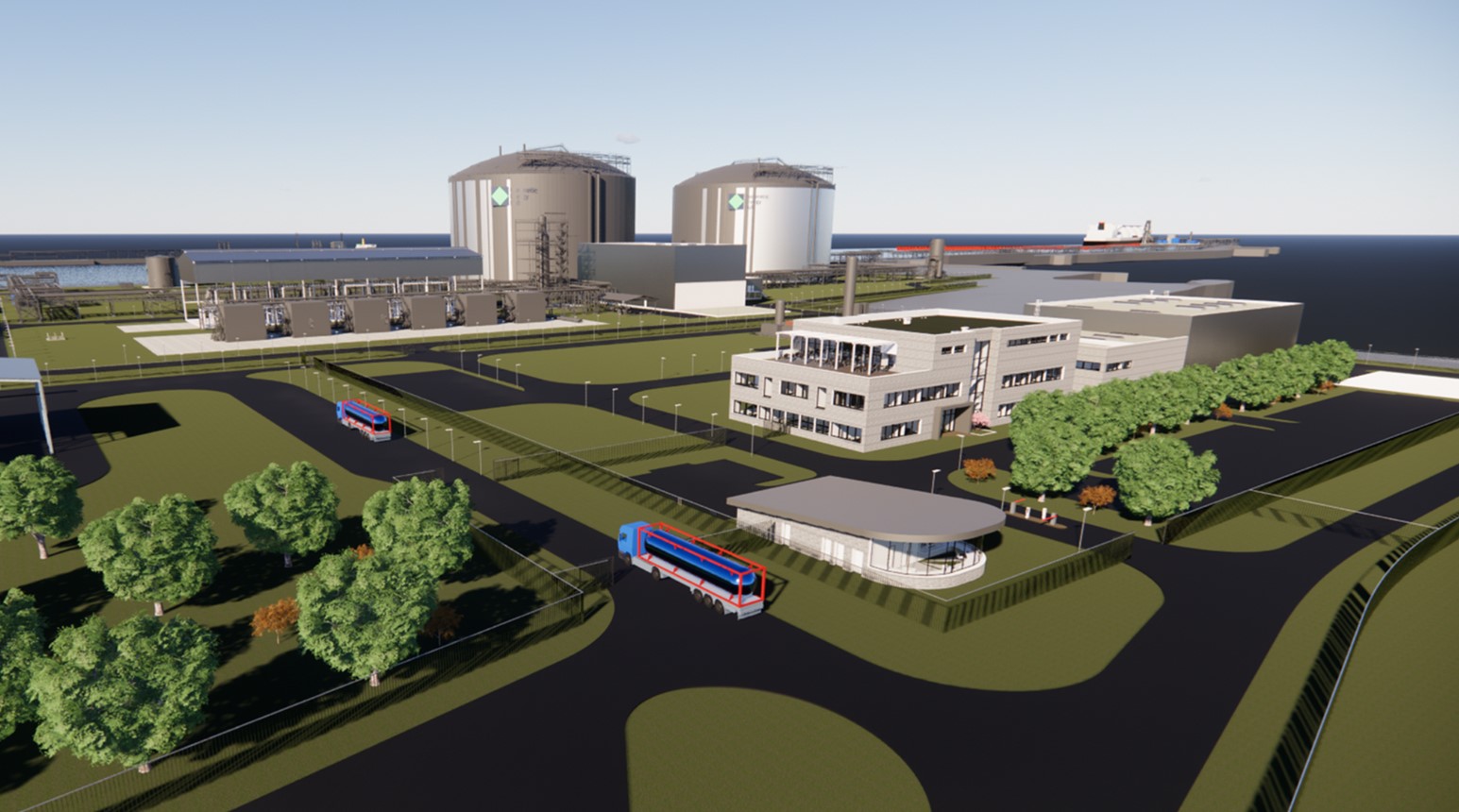Spanish LNG terminal operator Enagas has closed the previously announced deal to buy a 10 percent stake in Germany’s Hanseatic Energy Hub, the developer of the planned Stade LNG import terminal near Hamburg.
Besides the stake sale, HEH has chosen the Spanish transmission system operator as its industrial partner for the operation of the LNG terminal at the Stade industrial park.
Enagas said in a statement on Wednesday that the transaction has received the European Union’s competition authorization and an approval from the German regulator BNetzA.
HEH is now a consortium consisting of Dow, Partners Group, Buss Group, and Enagas.
Belgium’s Fluxys sold its shares due to a “strategic refocusing”, they previously said.
In April, HEH awarded the engineering, procurement and construction deal for its Stade LNG import terminal near Hamburg to a consortium led by Spain’s Tecnicas Reunidas.
The LNG terminal developer said at the time that the deal remains subject to the firm taking a final investment decision on the project worth about 1 billion euros ($1.05 billion).
HEH said in June that it is targeting FID for the terminal with a regasification capacity of 13.3 Bcm per year in 2023 and to begin operations in 2027.
Ealrier this year, energy firm EnBW doubled its capacity booking to 6 bcm per year at the planned LNG import terminal.
Besides EnBW, Germany’s SEFE plans to import at least 4 bcm per year via the terminal, starting in 2027.
FSRU
Prior to the launch of the onshore LNG import terminal, Stade will welcome its first FSRU as part of Germany’s plans to boost energy security and replace natural gas pipeline imports from Russia.
State-owned Deutsche Energy Terminal operates this project, as well as other three FSRU-based terminals in Germany.
DET is offering short-term regasification capacity at Germany’s FSRU-based terminals for the first time since its establishment in January.
In July, the 170,000-cbm FSRU Transgas Force, owned by Dynagas, arrived in Germany’s Bremerhaven where it will be prepared for its upcoming job in Stade.
Chartered by the German government, the FSRU is an “important building block” for ensuring energy supplies in Germany in the short term, HEH previously said.
“In parallel, we will be pushing full steam ahead with the expansion of our land-based zero-emission terminal, which will replace the FSRU from 2027,” it said.
In January, work started on the new LNG jetty in Stade.
German port firm Niedersachsen Ports (NPorts) is responsible for planning and implementation of the new jetty.
Enagas said in the statement that the work and jetty and the pipeline should be completed in Decemeber and the FSRU is expecte to start operations in winter.
This FSRU-based LNG terminal will have a capacity of some 5 bcm per year.

